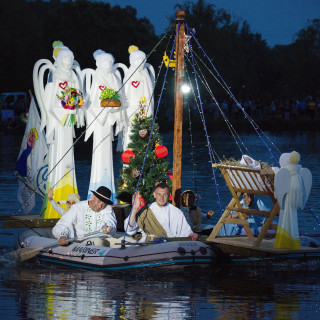Change, substitute and replace. These verbs are tricky because the understanding of what was "old" and what is "new" can become confused if you use them like synonyms.
Using the example of the ball and the puck (say /pak/), ice-skaters originally knocked a ball around with sticks, so the ball was "old", but then someone invented the puck, which was better for
knocking about on the ice, so skaters started using it instead of the ball, so the puck was "new".
So we can say that the skaters changed (or exchanged) the ball for the puck, or they replaced the ball with the puck, but we have to say that they substituted the PUCK
for the BALL, if we want to be clear that the ball was "old" and the puck was "new". Using "substitute" actively, you should reverse the order of the things, because the "new" thing is substituted
for the "old", but the "old" is replaced with (or exchanged for) the "new". Be careful listening to English soccer commentators, though, because they use "substitute" any which way they like !
Na podujatí Košické Benátky prezentovali svoje plavidlá aj naše spriatelené detské domovy.











